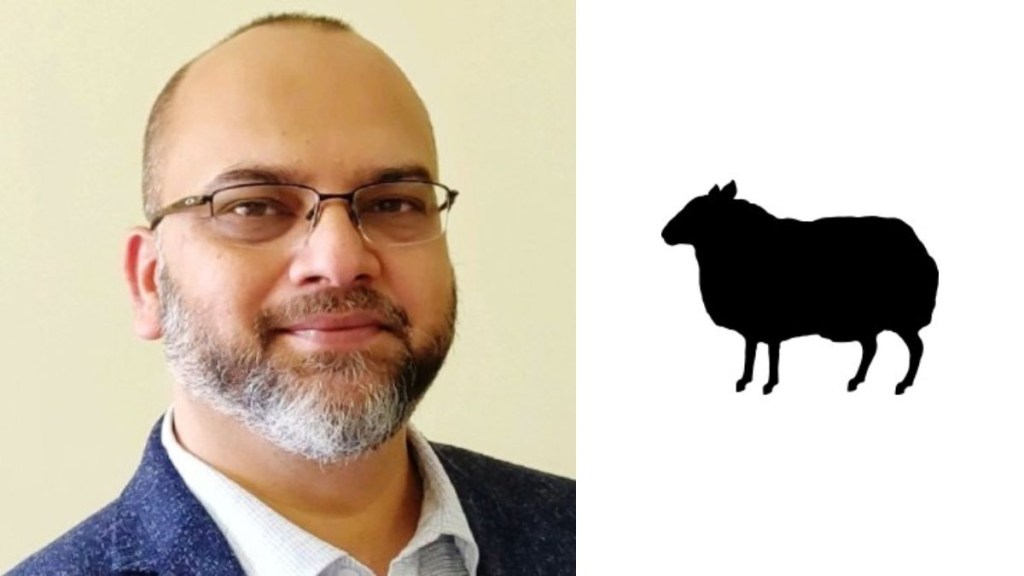In his first interview to the media after his appointment last year as the COO & MD at BBH India (a Publicis Groupe agency), Himanshu Saxena, talks about how the agency is exploring new areas of growth in digital, production, AI, and technology. He also tells Akanksha Nagar that clamour for accountability in new tech experiences and social media activities in India is growing. Edited excerpts:
How is BBH responding to the challenges thrown up by technologies like artificial intelligence (AI) or machine learning (ML)?
I believe the most organic involvement of creative agencies in the AI and ML space has been to explore how to utilise this technology in content creation. When dealing with a large volume of content creation, we have explored how AI can contribute to crafting captivating experiences and ML has played a role in developing content that offers unique experiences. What has become increasingly evident in the world of social and digital media is the need to tailor content for specific cohorts or segments, where AI is already playing a significant role and I anticipate that this trend will grow.
The group has made headway in initiatives aimed at building foundational technology platforms around generative AI to address its own business challenges, impacting areas such as product development, strategic planning, consumer insights, market analysis, and interactions with clients.
How much of the noise around technology is hype and how much of this is for real?
While there has been a lot of excitement and hype around various emerging technologies, the market is now shifting towards a more realistic outlook on how these new technologies should be utilised and how their impact can be measured. Marketers are asking questions about how this would translate into business impact and brand strength and there is now an increased demand for accountability. Given that technology is accessible to all, the key differentiator will be how creatively agencies use these to achieve more effective interventions.
Client-agency relationships have changed over the years. What sort of solutions do clients demand now?
Creative agencies need to think about every stage of marketing for a brand. They must create interventions, whether through technology, data, or other means. Agencies that do not recognise this need will face difficulties. The pandemic has driven a transformation in the outlook of many traditional legacy agencies. The most significant shift has been to consider the marketing funnel in its entirety and not just communication interventions. While traditional expertise remains highly valuable, traditional skill sets need to adapt and apply themselves to the new age. The ability to think about a brand, both strategically and creatively, is just as valuable as knowing what the next cutting-edge metaverse concept will be.
Marketing teams expect brand agencies to also possess expertise in understanding the entire marketing funnel. Brands are making multiple efforts to create parallel funnels at each stage. Even after a product has been purchased, brands are focusing on how to guide the consumer through the next stages of their lifecycle, encouraging repeat purchases and diversifying their engagement with the brand. The goal is to create loyalty and advocacy to attract more consumers. In a demographically vast market like India, you have millions of people associated with a brand at each stage of the marketing funnel. Marketers expect agencies to grasp this and provide creative solutions at every stage. Only a few agencies possess the skill to address a brand’s issues at every stage.
What is driving the recent consolidation in the ad industry?
I find the recent consolidation in agencies not particularly surprising. Some networks find themselves compelled to adapt to the evolving landscape. Certainly, there’s room for nostalgia when reflecting on the fate of legacy brands, but the reality is that a technology-driven and digital-oriented mindset is the prevailing trend. You can either choose to embrace and be comfortable with it or be uncomfortable and find yourself without a place in this evolving landscape.
What would be the key theme for the ad industry in 2024?
In 2024, there will be a strong emphasis on accountability and ROI, especially on digital and technology platforms. We will witness a more extensive use of advertising across categories, extending far beyond urban or digitally advanced markets into tier-1, 2, and 3 regions. The extent of this expansion will also depend on the state of the country’s larger internet infrastructure. Consequently, many so-called niche ideas that were primarily created for prestigious awards or niche audiences will likely gain mass adoption.
Please shed some light on the client’s roster that the agency acquired this year.
In terms of new client additions, the agency has exceeded any previous individual year in terms of new business wins; it added nearly a dozen and a half clients both in Mumbai and Gurgaon. These clients span multiple sectors, including BFSI, e-commerce, FMCG, dairy products, technology, edtech, and more; we have brought brands like upGrad, HDFC ERGO, and DP World (for which we executed a high-impact World Cup campaign), and Beams Suntory into the portfolio. We’re also launching a few global brands in India, such as Southeast Asian meat e-commerce company JAFPA and IVAS by Infra Market, a home interior brand.
We currently have a team of about 130 people across functions in both offices and are continually expanding. We anticipate an increase of at least 30% to 35% in the headcount next year, given the growth trajectories we are pursuing. There’s no separate digital team; everybody encompasses digital, ATL, BTL, and experiential. We are also particular about selecting individuals based on two criteria: diversified experience, especially at the mid and senior levels. This approach provides us with a broad range of skills to creatively address various marketing challenges. That apart, Publicis Groupe offers a global online learning and development platform called Marcel, and also has in-house trainers.
